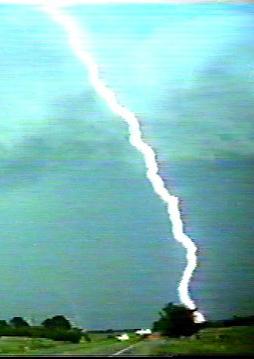
(Approximate start times) appear in parentheses.
Perl is a powerful tool for parsing TCPDUMP data and formatting the output for GNUPlot. A powerful method is to create 3D plot of Time, SDP (Source-Destination-Port) and number of Packets. The data can be stored in Perl hashes and the output piped to GNUplot from Perl. PortScans can actually be seen as vertical lines.
Eurocontrol manages air traffic for 31 European countries. Part of the job is done in Perl. Yves describes how he uses modules like COPE, Parse::RecDescent, XML::Parser and Tangram in the testing framework of Eurocontrol operational systems.
Java C++ and even Python seem to have the upper hand over Perl in the XML world. Why? How do we fight back? How can I avoid having to stand on this soapbox next year? Help Me!
My name is Carlos Ramirez and I created and maintain www.Perldoc.com. I would like to give a lightning talk on accessing Perl Documentation via urls from www.perldoc.com and other hidden features at perldoc.com. I am planning on releasing a newly re-vamped perldoc.com website before the conference which will include online documentation for almost all perl versions, link fixtures and CPAN docs. I will specifically focus my talk on using perldoc options by url.
I'll discuss what pseudohashes are, and why they were doomed to be "eternally experimental". We'll look at the issues pseudohashes were intended to solve. We'll visit the top three reasons pseudohashes deserved to go away. Finally, I'll touch on what finally happened to them, and why.
There are some people doing great work for the Perl world, who don't receive the recognition they should. I'll use my 5 minutes to give props to ma' peeps.
Using my Loop::Watch module, I will show a quick-and-easy example of making code that stops running (like a loop, for instance) as soon as a condition is met.
use Loop::Watch;
ensure { $money > 0 } using($money), looping {
visit_canada();
visit_hawaii();
visit_peru();
pass_go_and_collect_200_dollars();
};
Understanding Perl culture through the study of puerile attitudes, infantile behaviour, and childhood trauma.
I have a friend who is severely handicapped - she is a quadriplegic who cannot speak. With a special "Head mouse" she can move the cursor around but cannot click. Perl/Tk to the rescue! I made an onscreen keyboard for her with word completion, abbreviations, speech synthesis, calculator, alarms and timers, color selection, sound file playing, jpeg showing, ... even including a way for her to read a book by herself!
To many people, dial-up and telnet-based BBS is their first portal into the computer network. Its cross-protocol nature (e.g. file transfer, instant message, discussion boards, e-mail, MOOs) has made it the synonym of 'online community' for est. 1 million users in Hong Kong, China and Taiwan. However, the traditional Client/Server architecture has many prohibitive drawbacks, including an inflexible interface, no hyperlinks, single point-of-failure, and lack of privacy measures.
This talk will cover briefly on the BBS culture, and how we managed to connect existing BBS into a distributed community network, delivering the benefit of Napster, Freenet, OpenPGP, Slashcode, Jabber and FuzzyIndex to the masses via a streamlined console interface.
A parallel port driver, that allows perl to talk to the parallel port at the bit level, for controlling hardware.
It is designed to be cross platform (and partially cross language, although I have only worked on the perl version).
Demonstrates the usefullness of using a three (or more) tiered approach to API develpment. The first layer being the device you are controlling, eg: The CoffeePot Project, or JayCar XYZ Controller, or PIC Programmer. The second layer being the Device::ParallelPort (which does all the common work of all drivers, and is there to abstract any common code in the the drivers and devices). The final layer is the driver, this is the only code that is 'os' and 'hardware' independent. eg: There is a Win32dll driver, a LinuxDirect and LinuxParPort driver. Down the track I hope to have a 'LinuxUSBParallel' and a 'BeOS' driver.
These are questions that are answered by cross platform programs all the time, I am writting a library to detect anything that is common to operating systems, gaining most of my knowledge from existing projects that have hard coded these detections into there code.
Stage two of my development will be using this library in some other libraries, in particular a User api which will allow you to detect the users home directory on most operating systems, good for solving those problems like 'Where to store my configuration file'
I was a pretty good programmer years ago, but as management responsibilities increased, my programming time (and programming enjoyment) decreased. Perl reversed that trend. What aspects of the Perl language and Perl community supported that reversal?
It's generally accepted that increasing the number of people using Perl is a Good Thing, but is that what we really want?
The documentation for MakeMaker suggests we should, "Always begin with h2xs". But h2xs has many problems. Including only allowing one .pm file, not adding AUTHOR or ABSTRACT in Makefile.PL, and using Exporter in a clumsy way. This talk will show one possible replacement for h2xs.
But, soft! What light through yonder Perl Script breaks?
A module by Conway and Ingerson!
Arise fair Inline::Files, usurp the envious DATA handle,
Who is already sick and pale compar'd to thee.
Any questions? Mail me.
Return to: Universe of Discourse main page | What's new page | Perl Paraphernalia | Lightning Talks Page